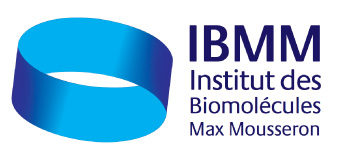Développement d’une boite à outils pour simplifier la synthèse chimique de protéines
Séminaire Chimie ED459
Dr. Vincent
Le Jeudi 08 Novembre 2018 à 14h
ENSCM, Amphithéâtre Mousseron A (campus Balard, 240 av. Émile-Jeanbrau)
Date de début : 2018-11-08 14:00:00
Date de fin : 2018-11-08 15:30:00
Lieu : ENSCM amphi Mousseron A (campus Balard, 240 av E. Jeanbrau)
Intervenant : Dr. Vincent
Groupe Chimie Biorthogonale et Protéines de Synthèse, CBM Centre de Biophysique Moléculaire UPR 4301 CNRS, Orléans
The production of proteins by total synthesis is a very promising alternative to recombinant techniques for applications to the deciphering of biological mechanisms at the molecular level, drug discovery and synthetic biology. It is particularly useful for accessing site-specifically modified proteins or ones difficult to express.
Current technologies focus on the modular assembly of unprotected peptide fragments, through highly selective “chemical ligation” reactions. This approach revolutionized the field some thirty years ago and is gradually being democratized for the synthesis of small proteins (50–100 amino acids). However, access to more ambitious targets in terms of size or molecular complexity remains a real tour de force still reserved for rare specialists, at the cost of considerable efforts. Four major bottlenecks need to be overcome : (1) the assembly of multiple fragments by successive ligations, that requires repeated purification steps ultimately leading to very low overall yields, (2) the handling of poorly soluble or aggregation-prone fragments, and the development of more efficient ligation methods, from both the points of view of (3) the nature of the chemical reactions used and of (4) the synthesis of appropriately functionalized peptide fragments.
The main focus of my group relies on the chemistry-driven conception and development of original methodologies to overtake these limitations. Our ultimate goal is to build a robust and versatile molecular toolbox aimed at simplifying the access to medium-sized proteins, and thus offer to non-specialists widely applicable technologies. Our second major research axis is devoted to biology-driven applications, through the synthesis of disulfide-rich or other conformationally-constrained peptide natural products not accessible through standard peptide synthesis or recombinant techniques.
References
1. V. Aucagne, et al., Angew. Chem. Int. Ed. 2012, 51, 11320–11324.
2. M. T. Jacobsen, et al., J. Am. Chem. Soc. 2016, 138, 11775−11782.
3. I. Valverde, et al., Angew. Chem. Int. Ed. 2012, 51, 718–722.
4. V. P. Terrier, et al., Chem. Sci. 2016, 7, 339−345.
Biosketch : Vincent
Contact Local IBMM : Prof. Gilles
